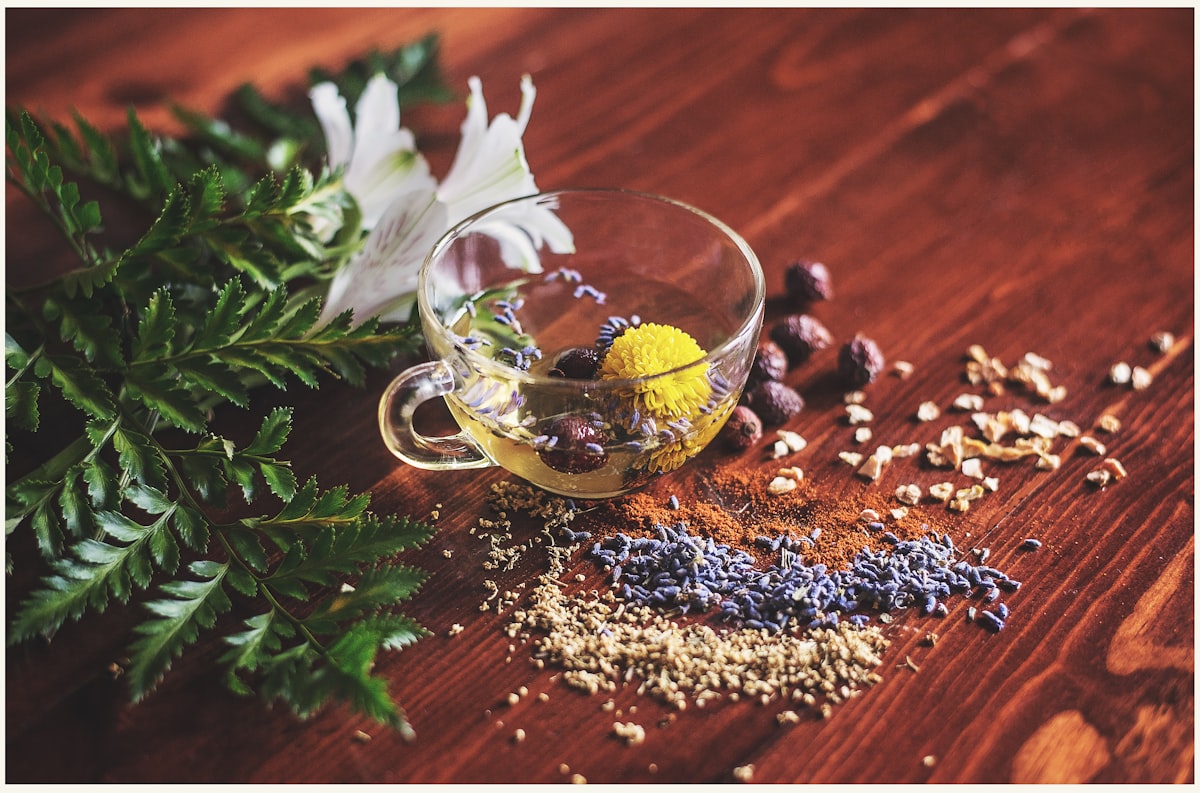nurturing winter wellness: ayurvedic herbs for holistic health

As the frosty breath of winter settles in, our bodies and minds undergo subtle transformations, requiring a harmonious approach to maintain optimal health. Ayurveda, the ancient system of medicine originating from India, offers a wealth of wisdom and a holistic perspective on well-being. In the winter months, Ayurvedic herbs play a pivotal role in nurturing and fortifying the body, mind, and spirit.
- Ashwagandha (Withania somnifera):
Known as the "Indian Ginseng," Ashwagandha is a powerful adaptogen that helps the body cope with stress and enhances overall resilience. During winter, it proves invaluable in supporting the immune system, combating fatigue, and promoting a sense of calm amidst the seasonal hustle. - Tulsi (Ocimum sanctum):
Revered as the "Queen of Herbs," Tulsi is a potent immunomodulator and an effective respiratory tonic. Its antibacterial and antiviral properties make it an excellent ally in preventing winter illnesses, while its calming nature helps alleviate stress—a common companion during the colder months. - Triphala:
A blend of three fruits—amalaki, bibhitaki, and haritaki—Triphala serves as a gentle detoxifying agent. During winter, when our bodies tend to accumulate toxins, Triphala aids in digestion, promotes regular bowel movements, and contributes to a rejuvenated and cleansed system. - Ginger (Zingiber officinale):
A staple in Ayurvedic kitchens, ginger is a fiery herb that kindles the digestive fire, or Agni. During winter, when digestion may be sluggish, ginger proves invaluable in enhancing metabolic processes, promoting circulation, and providing relief from respiratory issues. - Turmeric (Curcuma longa):
The golden gem of Ayurveda, turmeric boasts powerful anti-inflammatory and antioxidant properties. Its active compound, curcumin, supports joint health, boosts immunity, and aids in maintaining a robust respiratory system—essential elements for winter wellness. - Licorice (Glycyrrhiza glabra):
Sweet in taste and soothing in nature, licorice is a harmonizing herb that helps balance the various doshas, particularly during the cold and dry winter months. It is renowned for its ability to support the respiratory system and alleviate throat irritations. - Cinnamon (Cinnamomum verum):
Beyond its delightful flavor, cinnamon is a warming spice that aids in maintaining circulation and preventing winter chills. It also supports digestion, making it a versatile herb to incorporate into winter recipes and herbal teas.
Ayurvedic herbs offer a holistic approach to winter wellness, addressing the physical, mental, and emotional aspects of our well-being. As we embrace the wisdom of Ayurveda, incorporating these herbs into our daily routines can be transformative, providing a shield against winter ailments and fostering a deep sense of balance and vitality. By aligning ourselves with the natural rhythms of the season, we can navigate winter with resilience, radiance, and an enduring connection to our own well-being.


